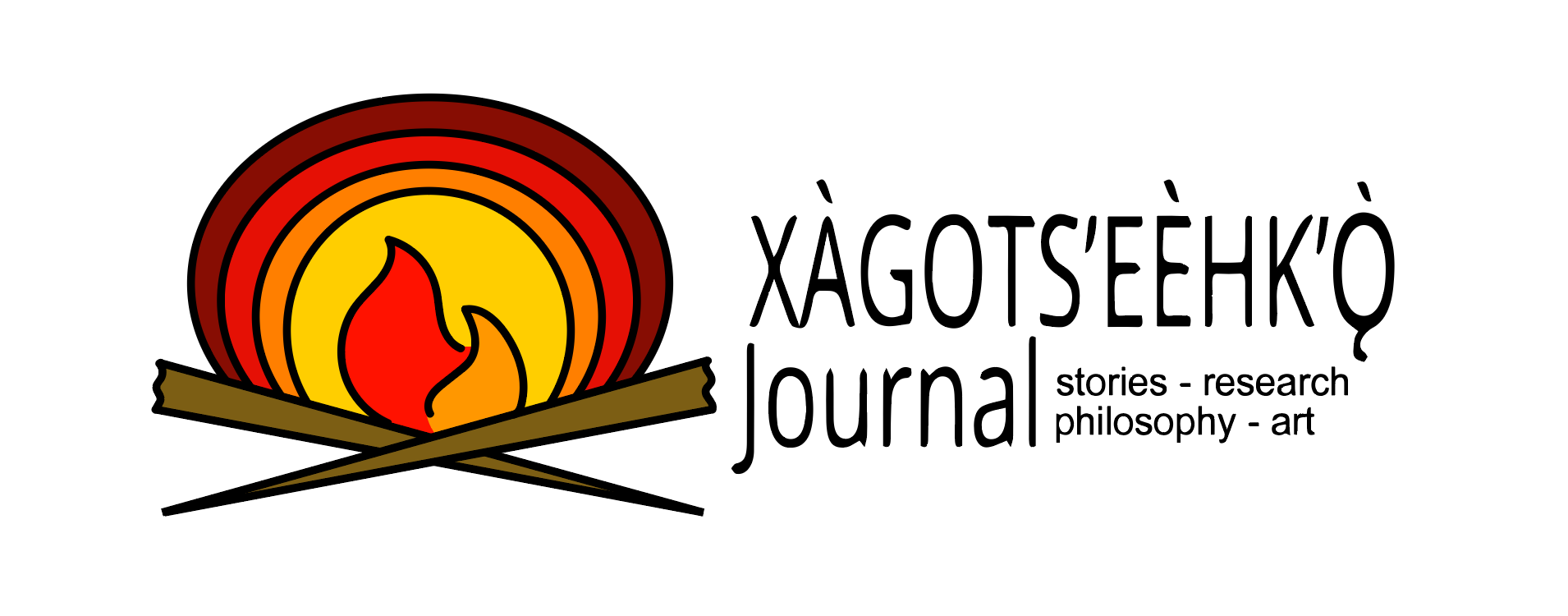Xàgots’eèhk’ǫ̀ translates to having a campfire in the Tłı̨chǫ language. Fire is important to Northerners; a campfire is where people gather, share stories, seek warmth, cook food, and many other activities. Like a campfire, this journal is a space to exchange information and bring together voices from across the North.

Listen to Rosa Mantla from Behchokǫ̀ pronounce Xàgots’eèhk’ǫ̀ in this audio clip.
The issues contain student, faculty and community submissions, scholarly articles reviewed by the Editorial Advisory Committee, opportunities to connect, research tools and sections highlighting research at Aurora College/Aurora Research Institute, as well as external organizations across the NWT.
About the Logo
The selected logo design was created by Aidan Cartwright, teacher and resident of Yellowknife, in collaboration with his wife Simone Tielesh.
The overlaid sticks are the foundation of the fire, representing collaboration and cooperation between distinct entities with a common purpose. (LAND)
The two flames of the fire are representative of learners, scholars, youth, and Elders. The one with greater knowledge is the larger flame and the learner or student is the smaller flame. Eventually the smaller flame becomes the larger flame through experience, an example of the cycle of learning and knowledge-sharing. (CULTURE)
The rings of light emanating from the fire are representative of what comes from knowledge sharing – stories, research, philosophy, and art. (WAYS OF LIVING)
Acknowledgement
Acknowledgement and appreciation: Dr. Pertice Moffitt
In 2020, Pertice Moffitt along with Co-Applicants Jessica Dutton, Kerry Lynn Durnford, Kim Lemky, Perez Oyugi, Stephanie Irlbacher-Fox, and John B. Zoe, received funding from the Social Sciences and Humanities Research Council of Canada for a Connection Grant enabling the development and creation of the Journal. With support from Dechinta Centre for Research and Learning, Hotıì ts’eeda, Aurora College, and the Government of the Northwest Territories, the first edition was published in November 2022. The second issue was published early 2024.


